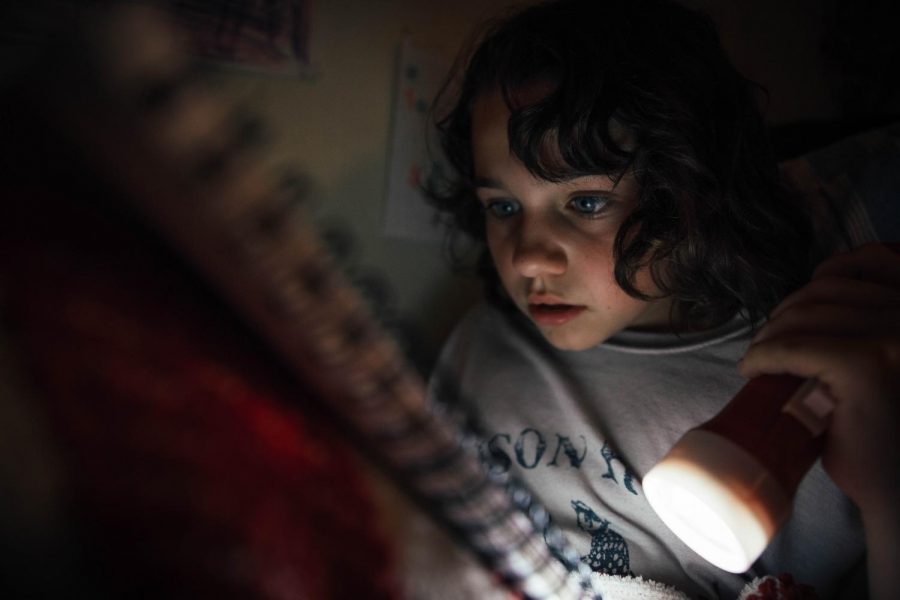‘Wendy’ Reframes the Story of Peter Pan Through a Lyrical Modern Lens
Devin France appears in Wendy by Benh Zeitlin, an official selection of the Premieres program at the 2020 Sundance Film Festival. Courtesy of Sundance Institute.
February 3, 2020
J. M. Barrie’s famous novel and stage play “Peter Pan, or The Boy Who Wouldn’t Grow Up” has been adapted countless times into various retellings, between theatre, books and film. It’s a tale that seems to intrigue everybody — a myth of what would happen if children were granted the choice to grow up or remain young forever.
Most versions of “Peter Pan” generally follow the same formula — we expect to see giant glittering pirate ships, flight and elaborate sword fights. Such repetitive elements make adapting “Peter Pan” a difficult task, as some takes inevitably outshine others through the repetition and redundancy. Consider how 2015’s “Pan,” starring Hugh Jackman as Captain Hook, was panned by critics and viewers. Certainly, some versions of the story stick around with us as good pieces of cinema, from 2003’s “Peter Pan” to 1991’s “Hook,” but ultimately the source material is now risky to work with. Benh Zeitlin, the new yet acclaimed director of the Academy Award Best Picture nominee “Beasts of the Southern Wild,” has decided to make this very gamble with his second feature “Wendy.”
Zeitlin approached this material through an original angle by portraying the story of Peter Pan in a modern-day Southern Gothic setting, where lost boys jump passing freight trains rather than fly out their bedroom windows. In some ways, the approach makes “Wendy” outstanding, though also perhaps slightly bothersome — those who want to see the traditional narrative of “Peter Pan” from Zeitlin will definitely walk away disappointed. Don’t approach “Wendy” planning to see glitter, fairies or mermaids. “Wendy,” while it is a kid-friendly movie, is far more grungy. Though Zeitlin’s film does contain elements of magic, from an enchanted whale to a mysterious volcano, it feels grounded much more in realism than fantasy. In this way, “Wendy” reflects “Beasts of the Southern Wild” by taking on a magical realist narrative, where doses of the fantastic are added to ordinary settings and treated as if there were nearly nothing out of the ordinary about them.
In this sense, “Wendy” takes on a much more symbolic frame than other adaptations of “Peter Pan,” and this is where the film finds many of its strengths and high points. One of the most brilliant liberties that the film takes with the “Peter Pan” lore is that in its version of Neverland, those who are happy remain young while those who experience sadness age. This provides the characters with a backdrop to discuss, in-depth, whether sadness is a good or a detrimental emotion. While all of the children of “Wendy” are played by new talent, each of them manages to convey a deep sense of emotion with their acting. Of course, Zeitlin has already shown himself skilled at directing young actors — in “Beasts of the Southern Wild,” Quvenzhané Wallis became the youngest person to ever be nominated for Best Actress at the Academy Awards, at the age of nine. Here, with nearly the entire cast composed of children, “Wendy” never skips a beat, and the film feels like something of a miracle as a result. Watching the film doesn’t feel as if one is watching children acting out a play, but rather an intense and deep inner circle of children’s lives. It’s haunting and forlorn but in the best possible sense.
The questions that Wendy (Devin France) grapples with are those that haunt everyone, no matter their age. We first see Wendy as a toddler, already fulfilling adult roles and helping her mother (Shay Walker) run her diner. When one of her friends runs away after his grandmother teases him that he will lead an unremarkable life as a janitor, Wendy asks her mom about her own hopes and dreams. Wendy’s mother, we learn, once dreamed of being a rodeo star, but has since given up her dream to become a mom. Afraid that she will grow up to lead the same fate, Wendy inevitably makes her way to Neverland for herself, but still, her mother’s choice haunts the remainder of the fairytale. Is it the right choice to give up our childhood fantasies and instead grow up to protect and care for our loved ones? The script of “Wendy” wrestles with these questions throughout, lending this version of “Peter Pan” an upfront, raw interpretation. The film is less about the magic of youth than it is about the inevitability of letting dreams go.
“Wendy” is not a perfect film. It likely won’t please mass audiences who anticipate something different or more lighthearted. Likewise, the plot feels slightly rushed in some places and drawn out in others, though one could also argue that such a pace was intentional on Zeitlin’s end. On the whole, however, “Wendy” is simply a beautiful film deserving of praise. I would personally rate it a full 10 out of 10 stars.












